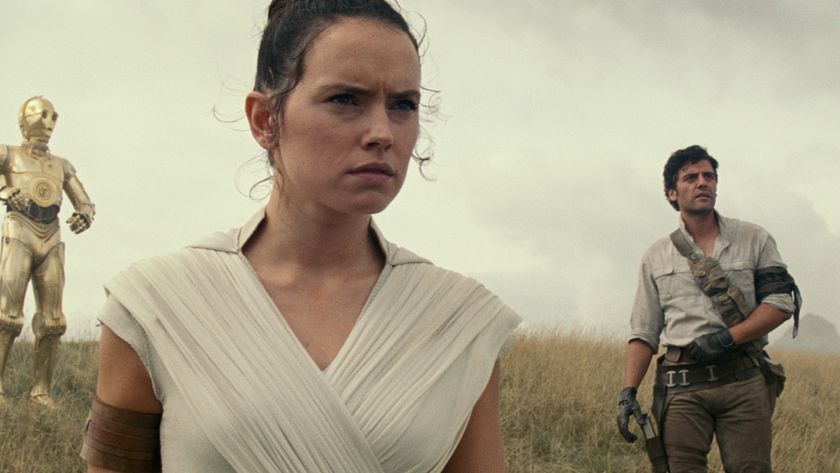Is it just me?... Or are biopics a waste of time?

In our regular polarising-opinion series, one Total Film writer argues that biopics are just a big old waste of time.
Read on, and let us know what you think of the argument aired by having your say in the comments section below.
Is it just me... Or are biopics a waste of time? asks Matt Glasby
Actors love biopics because they love Oscars, but what’s in it for the rest of us? Clearly some (Malcolm X) are better than others (Diana), but the basic format is flawed. Biopics are formulaic – there’s always an inciting incident, a wraparound story, eventual redemption – when real life is anything but.
Films are poor at showing the passing of years, so you can see the join when, say, Love & Mercy’s Paul Dano turns improbably into John Cusack. Real life is rather better at this. Often, biopic characters don’t even talk like human beings. Young Brian Wilson (Dano) may well have pronounced, “If you repeat a mistake every four bars it’s not a mistake anymore,” but it feels like the screenwriter talking, not Wilson. Plus being true is not a defence against being unconvincing.
Biopics print the legend, streamlining the facts into fiction, but at what cost? Walk The Line all but erases Johnny Cash’s first wife, Vivian Liberto, the woman he wrote the song ‘I Walk The Line’ for. The Imitation Game leaves out people who helped Alan Turing (Benedict Cumberbatch) crack Enigma, and adds in others he didn’t meet – including, controversially, spy John Cairncross (Allen Leech) who Turing doesn’t report, making him, according to the film, a traitor. And these are the good ones. The dismal Jimi: All Is By My Side contains a scene where Hendrix (Andre Benjamin) beats girlfriend Kathy Etchingham (Hayley Atwell) with a phone. The only problem? It never happened.
Mostly, though, biopics don’t want the full-fat truth, they want the skimmed- milk version. The Theory Of Everything is beautifully performed and put together, but it’s based on Jane Hawking’s ‘nice’ memoir, Travelling To Infinity, rather than her earlier, ‘nasty’ one, Music To Move The Stars. This is a film that deals with crippling disease, the absence of God, the very fabric of the universe, yet it can’t handle the possibility that Hawking (Eddie Redmayne) might be a genius and difficult to live with.
Sign up for the Total Film Newsletter
Bringing all the latest movie news, features, and reviews to your inbox
But why shy away from rough edges? Life has rough edges. People are complicated, infuriating, contradictory, but biopics flat-pack them into convenient ‘characters’. It would be more revealing to see Alan Turing taking out the bins than single- handedly winning World War II. Mike Leigh’s Turner effectively did this, exploring the mundanities of the great artist’s life. The result? It was as boring as watching sputum-flecked paint dry.
Biopics just can’t win. This is why fiction’s often better at getting to ‘the truth’: it’s easier to start from scratch than to wrangle 90 years into 90 minutes. Even at their best, even when, in Hawking’s verdict, “broadly true”, biopics only give us the bullet points. You know what else is good at that? Wikipedia. Or is just me?
Agree or disagree with Matt? Hit the comments section below to share your view!

















